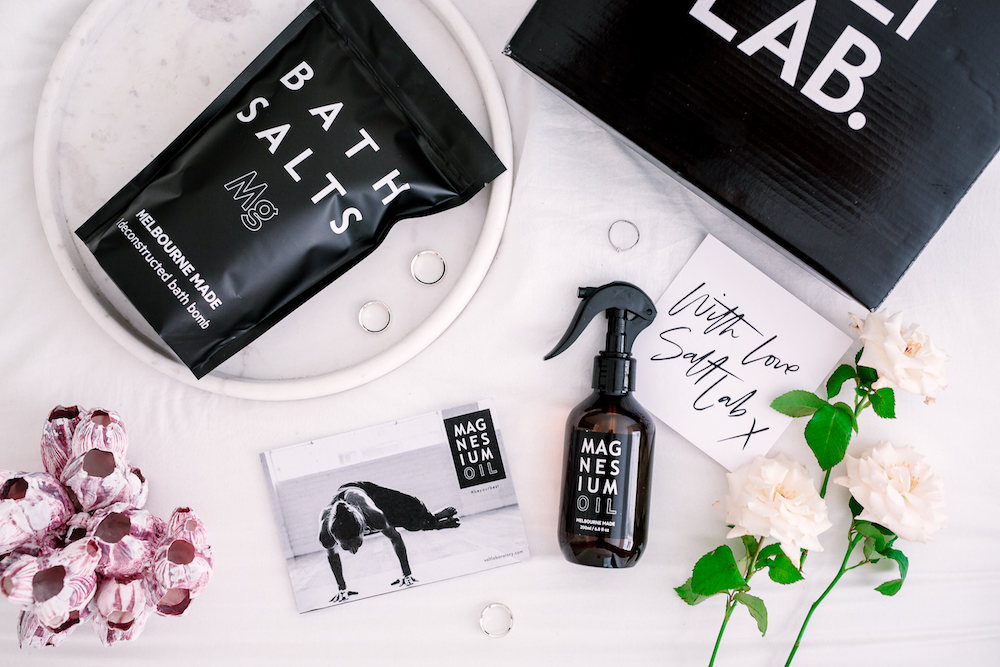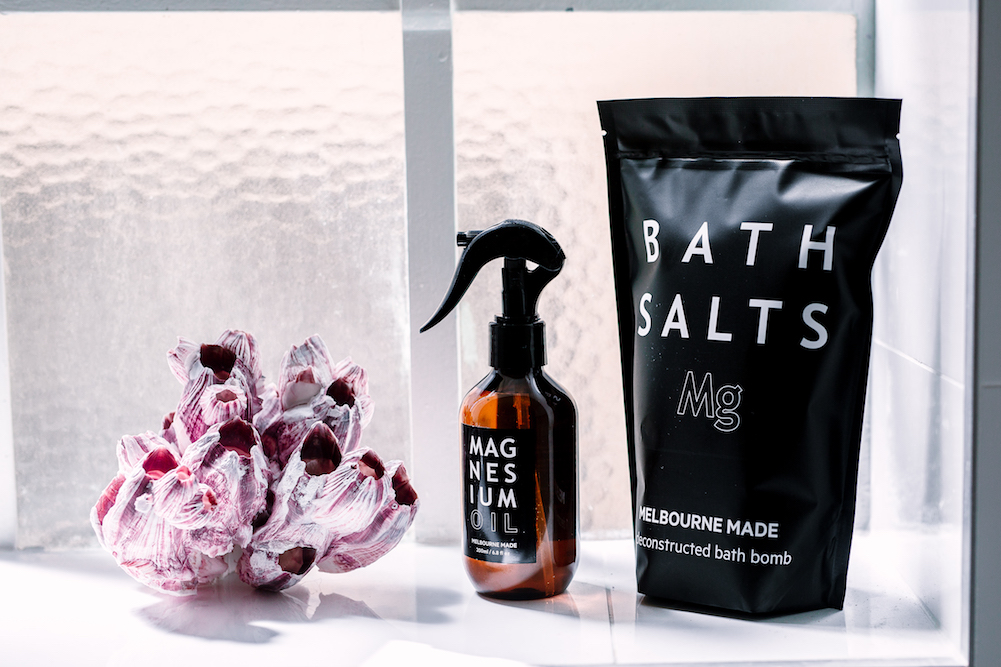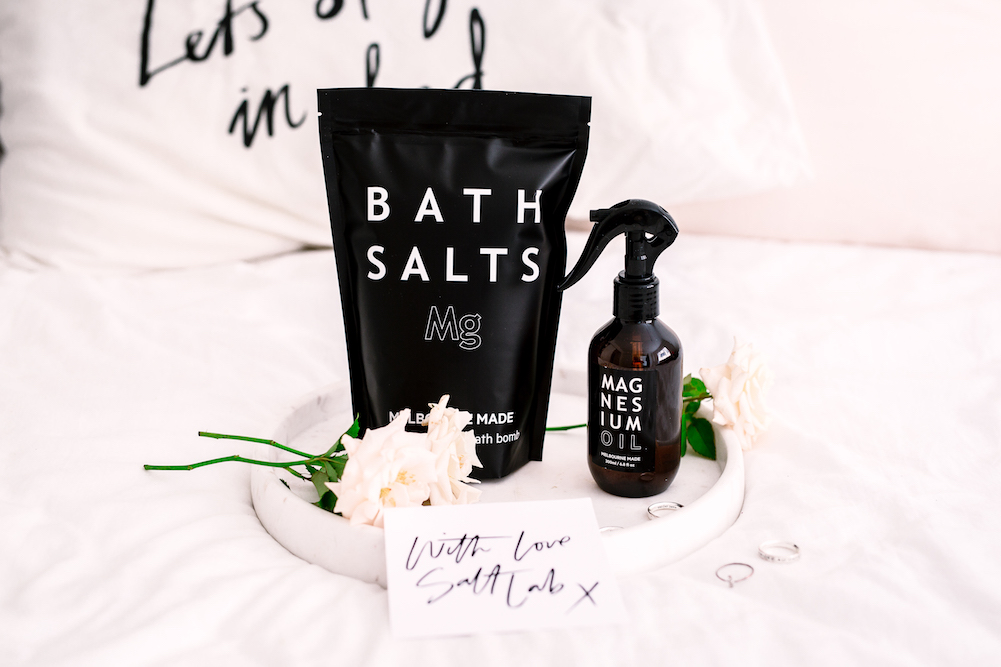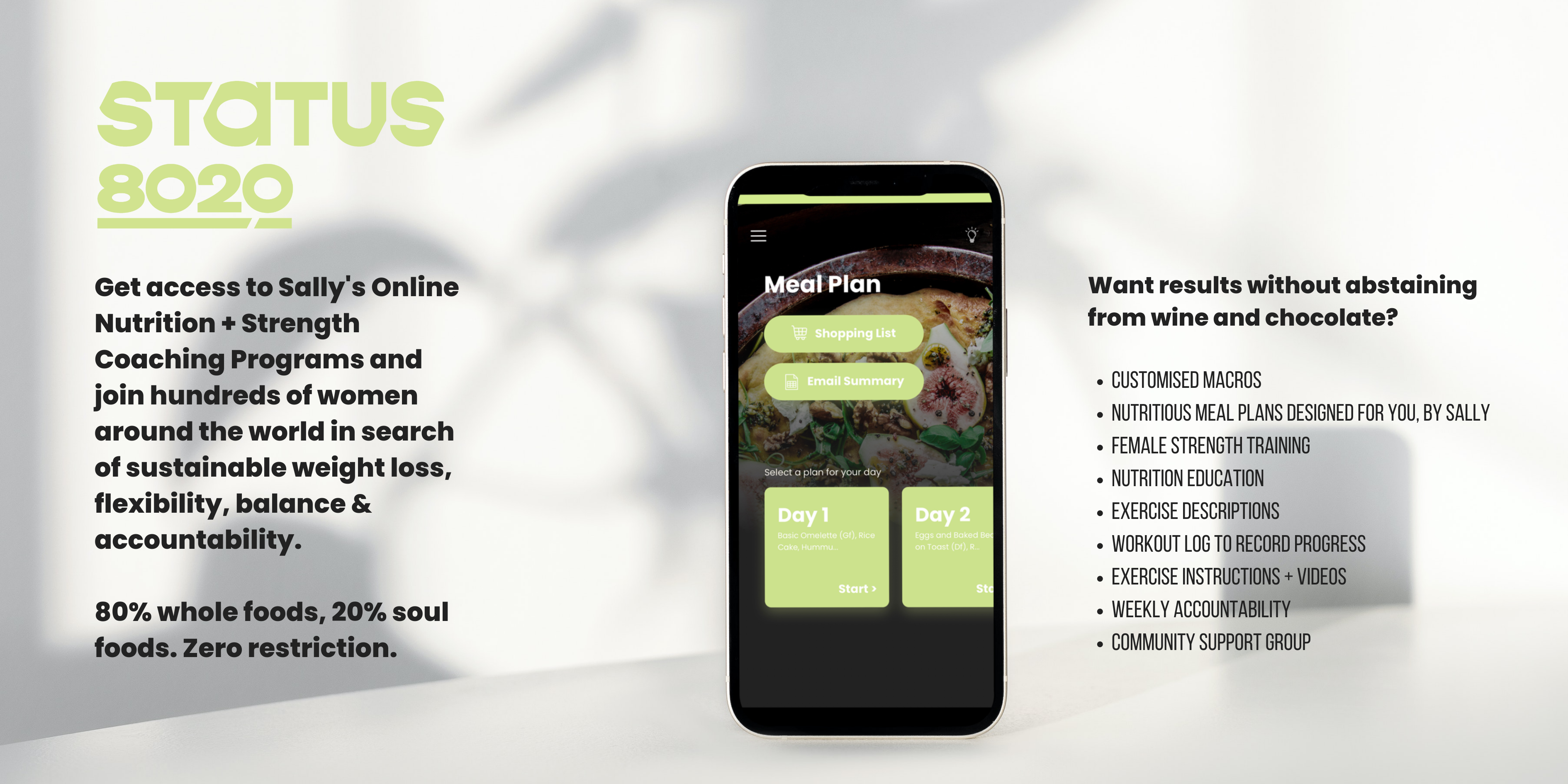Running three businesses, keeping on top of blog posts, finance, Instagram, photography editing, client emails and a nutrition degree can certainly crank up my stress-o-meter. It piles up and I'm running around with a thousand brain-tabs open wondering what the six tasks were that I was trying to do. Sound familiar? Not only is it totally unproductive, it's actually not great for my health. Not ideal, given I'm The Fit Foodie, right? Finding balance is a big part of my health journey, and my hope for you is that it becomes part of yours too. I work out or move my body in some way every single morning to manage my stress levels. To give me a helping hand, I've been focusing on MAGNESIUM from Salt Lab to help me with both stress and the soreness I feel after a hard workout.
So how do I alleviate stress? These are my go-to steps when I feel the pressure rising:
- cut out all caffeine
- increase magnesium levels
- maintain a good workout schedule
- reduce screen-time + prioritise sleep
Cut out Caffeine
Caffeine elevates cortisol levels, which is your stress hormone. So you're already clocking high on the cortisol Richter scale, and then you throw in a bit more for good measure...and then BOOM, you're a jittery mess. When I'm feeling the pressure, this is one the first things I cut. It also stops us from getting good quality sleep, or in fact, any at all. That, in turn, pushes up our cortisol again, but we're tired so we reach for more coffee. See how this quickly becomes a cycle of addiction?
Increase Magnesium Levels
Magnesium plays a central role in just about every bodily process - including insulin regulation (that's your blood sugar levels). When your blood sugar levels are high, your body stores the glucose for use at a later date. That storage of energy can cause weight gain, so it's important for a healthy body to have relatively stable blood sugar levels.
Unfortunately, it’s possible to have a magnesium deficiency even with a healthy diet. The way we farm cops in today's society means our soils have fewer nutrients in them. In turn, our fruits and veggies (and animals that graze them) are getting fewer nutrients, which hits our food chain hard.
When you're deficient in magnesium, you might experience twitches and cramps in your muscles, fatigue and muscle soreness. Increasing your magnesium can help with recovery, so if like me you work out a lot, this stuff is your new best friend. The benefit of increasing magnesium through your skin is fast relief and efficient absorption into your blood stream. It works the same day - so you don't have to wait weeks to feel the benefits - YAY!
Are you Magnesium Deficient?
Signs of deficiency include:
- Longer than usual recovery after exercise
- Sore muscles and joints
- Fatigue
STRESS can also cause a magnesium deficiency, so if you're working long hours or feeling the pressure from work and life issues, your body will require more magnesium.
NB: As always, consult your healthcare professional before you start any new treatments or have continuing symptoms like those listed above.
How to increase your Magnesium.
-
FOOD.
My answer to almost every ailment! But seriously, this should be your first port of call when you're deficient in anything. To ensure you're getting plenty of magnesium, it's a good start to increase the amount of magnesium-rich foods we're eating. There’s a good amount of magnesium in spinach, avocado (my favourite), figs, and almonds - keep scrolling for more suggestions.
-
MAGNESIUM SALTS + OILS
I spend 30 minutes a few times a week just lapping up magnesium in a few different ways:
Magnesium oil
Magnesium oil comes in a few different ways - you'll most often see sprays and roll-ons in health food stores and pharmacies. Whichever way it's sold, the products can give us a dose of magnesium transdermally (direct through the skin). I've been advised that it is best absorbed on the balls of the feet, stomach, and behind the knees - which is where I apply it an hour before bed to help me get into a deeper sleep.
Magnesium bath salts + bath bombs
Add magnesium chloride salts to a warm bath and soak, baby. I personally LOVE the Salt Lab magnesium range - I use a bath bomb in warm water (just a 20-minute soak) after a workout, then dry off and apply their magnesium oil spray. You can apply it straight to tired muscles and sore joints. My boyfriend (a chef) loves to apply it to his sore knees when he's been on his feet all day.
Maintain a healthy workout schedule
I love to move my body first thing in a morning. It helps wake-up, feel energised and stay focused for the day ahead. Whilst working out is amazing for managing stress, it can deplete your body of magnesium. I KNOW, so annoying right? It also gives me sore muscles, so this is another reason why I'm focusing on increasing my magnesium.
Screen-time + Sleep
For me, stress is generally worsened by lack of sleep or poor-quality sleep. I'm often laid in bed rattling through thoughts in my overactive brain. Sound familiar? This is caused by hyperarousal - often caused by staring at screens late at night. A quick scroll on Instagram or being bombarded with information from the TV before bed keeps my brain firing. We need at least 30 minutes wind-down before we jump into the sheets so we can get a restful 7-8 hours. My solution? A warm bath with magnesium salts (as above) 1 hour before bed. It helps me get proper rest and manage my stress, contributing to healthier magnesium levels.
Top tip: you can also increase your magnesium intake with foods - the richest spruces are seeds and nuts, but whole grains, beans and leafy green vegetables also do the job, along with DARK CHOCOLATE. Permission to eat a few squares granted.
Isn't it time you prioritised yourself and worked on those stress levels and faster workout recovery?
Sleep well Fitties.

SALLY RECOMMENDS
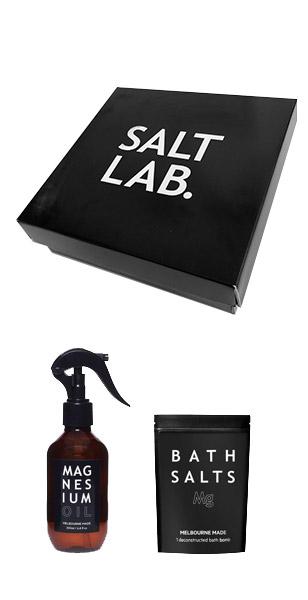
Editors note: This post is sponsored by Salt Lab. I only ever recommend products and services that I have tried, tested and genuinely fallen in love with. All opinions and images are mine, baby. Thank you for supporting the businesses that make The Fit Foodie Blog possible.


